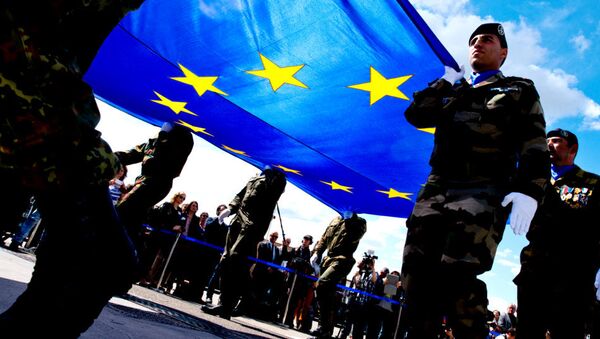The ministers will be urged by France to put pressure on European Parliament lawmakers to drop opposition to the proposed introduction of the Passenger Name Records (PNR) scheme, which will allow for the collection and retention, for a period of time, of all data associated with air travelers in the EU.
However — despite having the backing of EU Civil Liberties, Justice and Home Affairs Committee — the proposal has stalled in the European Parliament over privacy and human rights fears.
The controversial mass data collection has brought criticism from civil rights groups who say the mass collection of data is a breach of the right to privacy and will not, in any case stop terrorism. The PNR data handed over by the airlines will be retained for five years. For the first six months, the data will be "unmasked" to include personal identifying information, after which the data will then have to be "masked out" for the remaining four and a half years.
Media advisory ahead of today’s extraordinary meeting of ministers for justice and security (pdf) https://t.co/3O2JvhOxey #BrusselsAttacks
— EU Council Press (@EUCouncilPress) March 24, 2016
Joined-Up Intelligence
The emergency meeting Thursday follows criticism of law enforcement agencies over their lack of cooperation and sharing of intelligence. It emerged that Abdelhamid Abaaoud — one of the terrorists who took part in the series of attacks on November 13, 2015 in Paris killing 130 people and injuring hundreds more — was able to cross from Europe by ferry and meet jihadists in the UK, despite having an international arrest warrant out on him.
Abaaoud, along with other attackers — including Salah Abdeslam, who was also known to the law agencies — was also able to travel unchecked between Syria and Europe, bringing calls for better intelligence-sharing. Abdeslam was shot and arrested on March 18 and is currently being interrogated in Belgium.
The Netherlands — which currently hold the presidency of the Council of the EU — is pushing for more powers for law agencies Europol and Interpol to counter terrorism. Although there are already international protocols in place, the Dutch want Europol and Interpol to be able to share a greater amount of intelligence on their databases.
The European Commission is proposing changes to the already existing European Criminal Records Information System (ECRIS) which currently allows for the swift sharing of criminal records of EU citizens. However, the major flaw identified after the Paris attacks was that the system does not include non-EU citizens.




